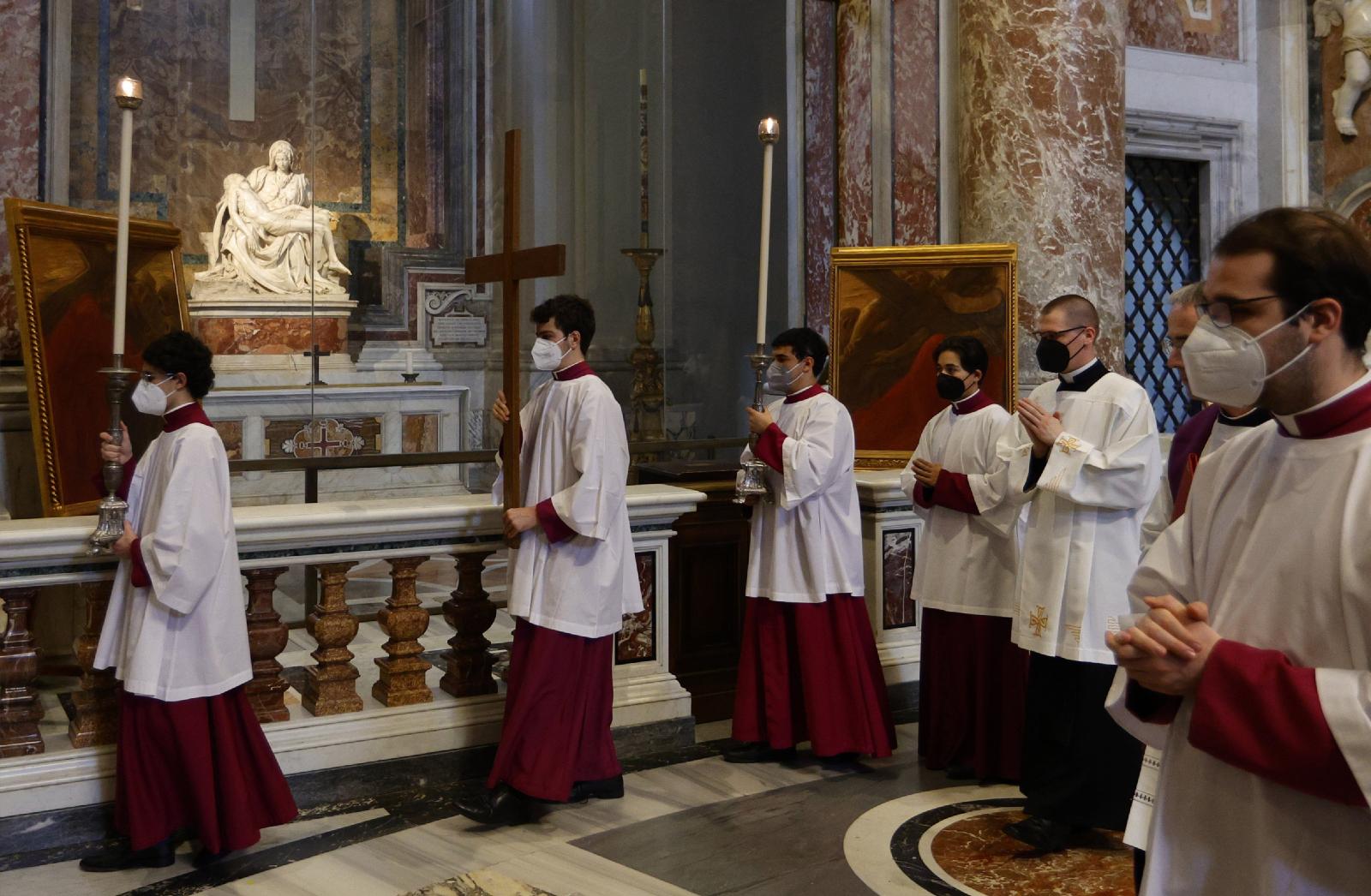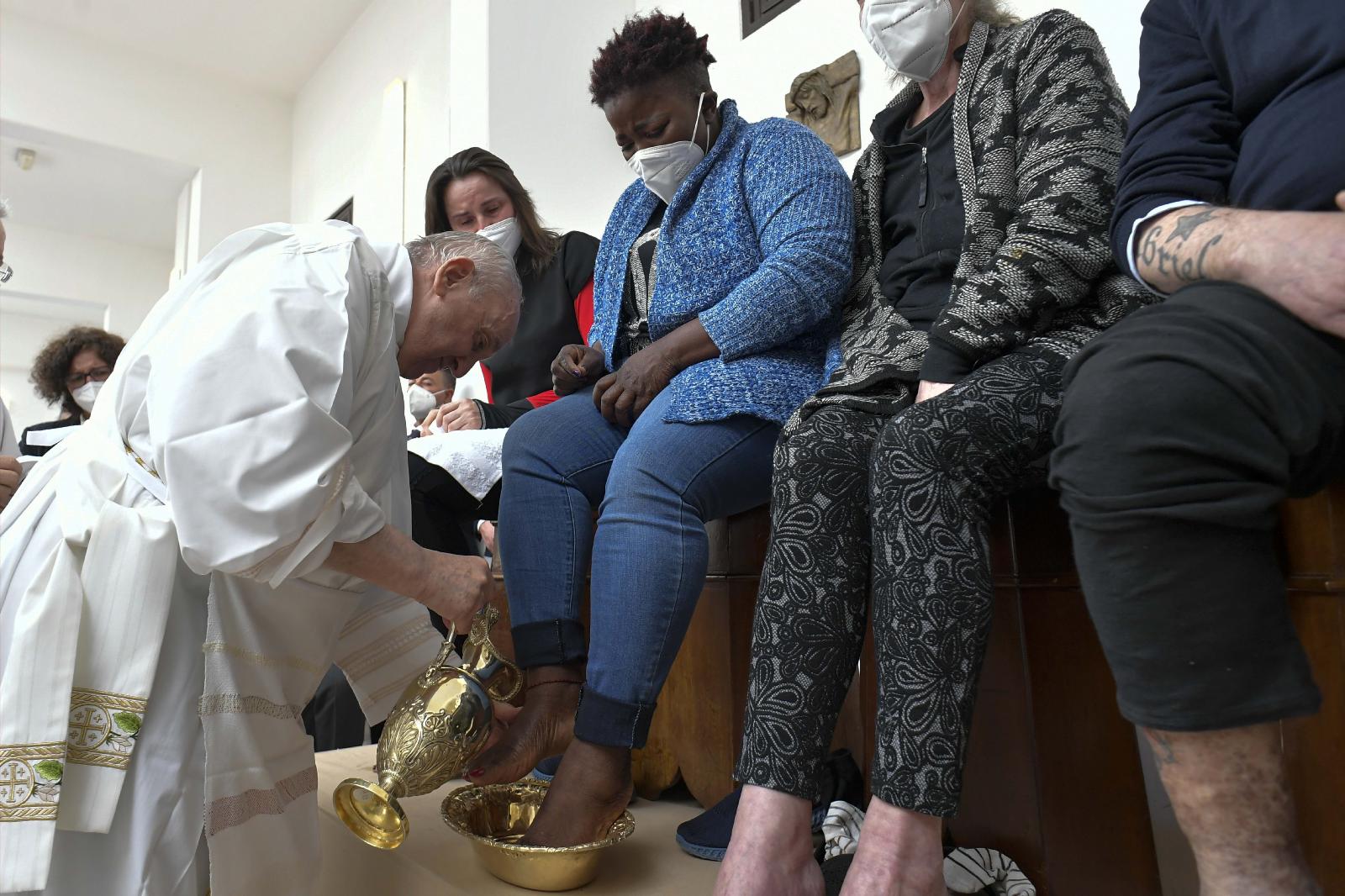The Mass of the Lord’s Supper on Maundy Thursday is the only day of the year when the Church lays down what the content of the sermon should be. The celebrant is instructed to preach about three things: the Eucharist, the priesthood and the virtue of charity. In reality, of course, these are not three subjects, but three apsects of the same subject: namely, our sharing, by grace, in the life of God Himself who is, St John tells us, Love Itself, which is the point of life itself.
Few theologians have described what the Mass is as succinctly as St Thomas Aquinas in the 13th century. Here’s what he says: This is a holy banquet, indeed, in which Christ Himself is made our food; the memory of his Passion is told again, grace fills the mind and heart; and there is given to us an assurance of the glory that, one day, will be ours. The Mass, in other words, brings us into the presence of Christ, as he shares the Passover meal with his closest friends, as he endures the agony and torment of the crucifixion, and as he rises from death to glory.
We’re brought into his presence not as spectators, but participants: we’re with him at table, with him on the Cross, and with him as he rises from the tomb. That’s why, by participating in the Mass, we’re consciously committing ourselves to the unity expressed in this banquet, to the love proven on the Cross, and to the glory manifested in the resurrection. But, above all else, we’re are consciously committing ourselves to making real in our own lives the selfless act of love and generosity that is at the heart of all the events we celebrate over the next three days. We’re committing ourselves to nothing less than turning the world and its ways upside down.
Remember the context: Jesus and his disciples lived under an allpowerful state-system that preserved itself by violence, whose chief instrument of order was the cross, the most feared form of public execution; and at this Passover meal with his disciples, Jesus is anticipating his own execution at the hands of the system. There will always be victims of the system, those who speak out against it, who refuse to sacrifice their integrity by staying within the system, by staying quiet. And it was precisely as one who was to become a victim of the system that he took bread and wine and identified himself with them. “Take and eat, take and drink”, he says, “this is me, crucified for you.”
The consequence of eating this Bread from heaven and drinking this cup which is his Blood is that we become identified with him in the very depths of our being: and, in becoming identified with him, we commit ourselves to his way of living and dying - living lived and dying unselfishly and generously in life-sharing love. In the Mass Jesus offers himself to be shared – “me for you”: but, having become sharers of his life, we’re invited to do the same for each other. His words must become our words: only in this way is the full meaning of his words fulfilled.
Those words, repeated ever since, offer change to the world, because they change us. Once you take part in the Mass, it’s your own body that’s being talked about, because you have become one with Him, part of Him. That’s why the only ‘solution’ to this world’s woes, for us as individuals and as a society, is to recover the meaning of those eucharistic words: to make them the measure of everything we do. The world will change only when we change, when our identity with Him becomes suffuses every part of our lives. 3 And when it does, we experience the fulfilment of our deepest desire, at the root of our being: which is, to be for others: to love, in other words.
The fulfilment of that deepest of all desires is what we’re made for, and, until it’s realised in us, we will know only frustration and unhappiness. To live for and by myself is that ultimate misery we call ‘hell’; to live with and for others is that ultimate mystery we call ‘Heaven’. And, in the Eucharist, to quote Aquinas once more, “we are given an assurance of that glory [heaven], which, one day, will be ours.”
Some themes here were inspired by the late Dom Sebastian Moore (1917-2014)



 Loading ...
Loading ...
What do you think?
You can post as a subscriber user ...
User comments (0)